The key terms
For decades now, employees have complained about long commutes, rising house prices in city centres, and the inflexibility of working in a centralised office 9-to-5. Change was inevitable (though none of us could have expected that change to come in the form of a pandemic); and after the many trials and tribulations of working-from-home, it’s clear that hybrid working is the way forward if we want to give people the best of both, as well as boosting productivity and happiness.
But let’s get back to basics - this topic is new for everyone, so allow us to break it down for you. And if you’re too busy to read the full article, we’ve summarised the key terms you need to know in a handy set of infographics...
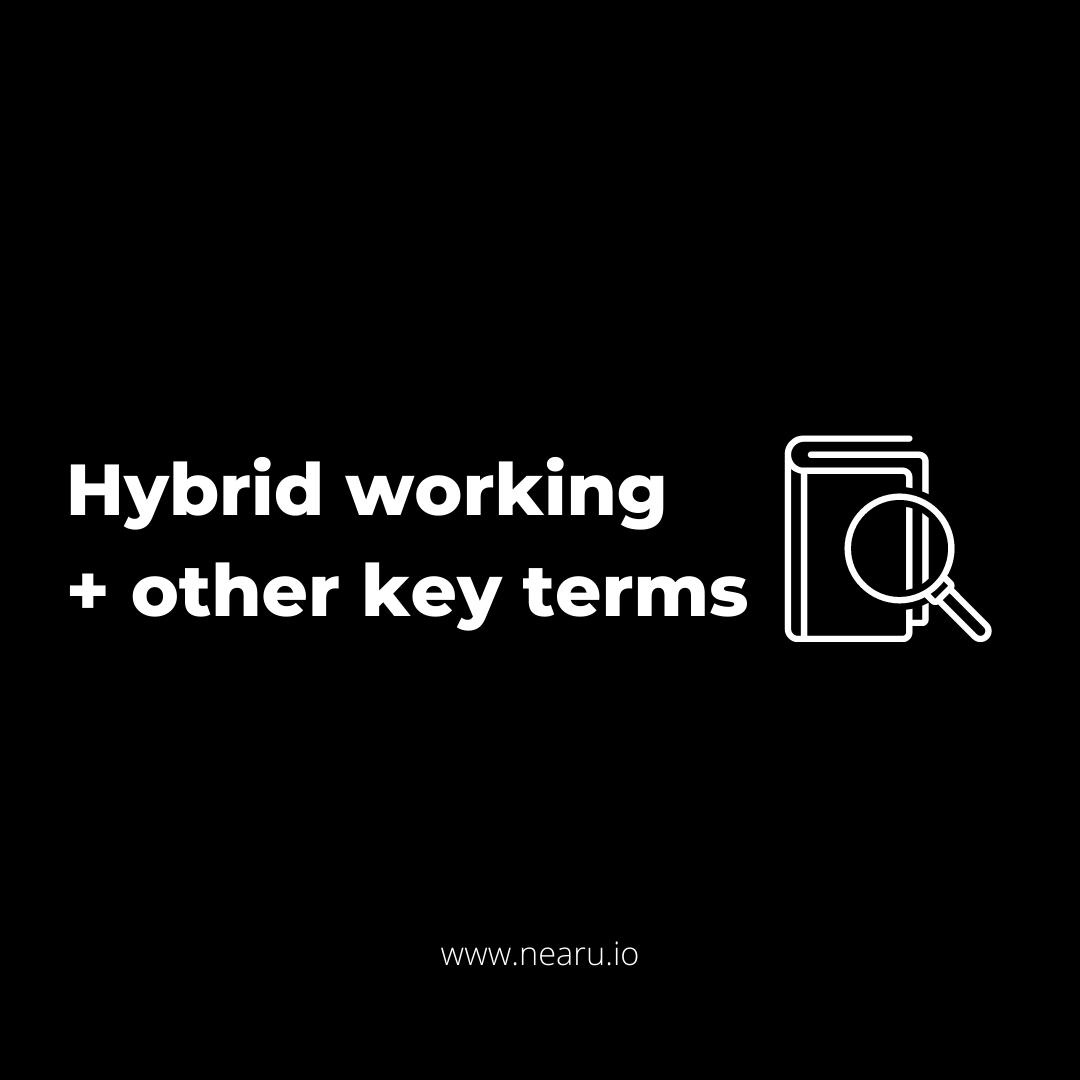
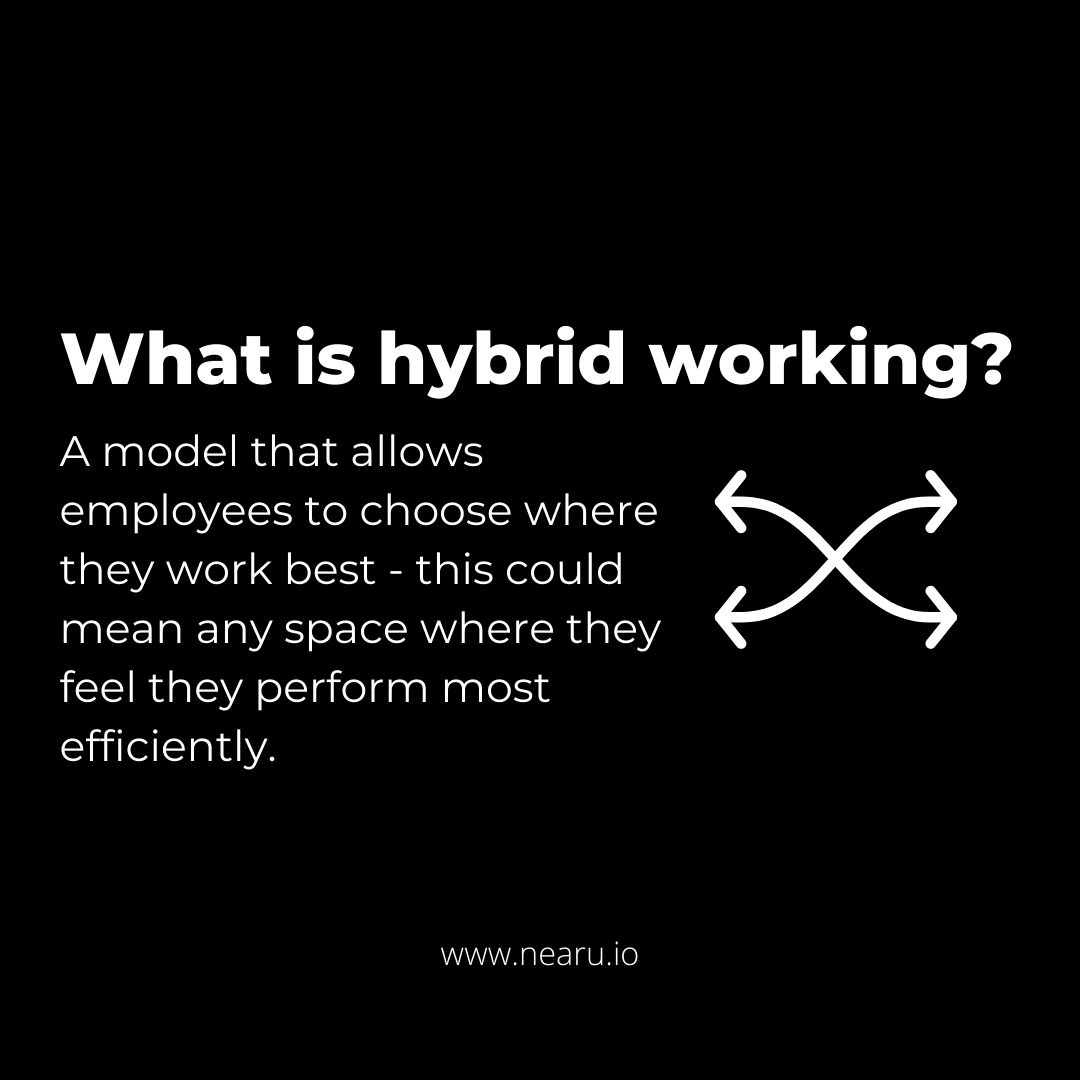
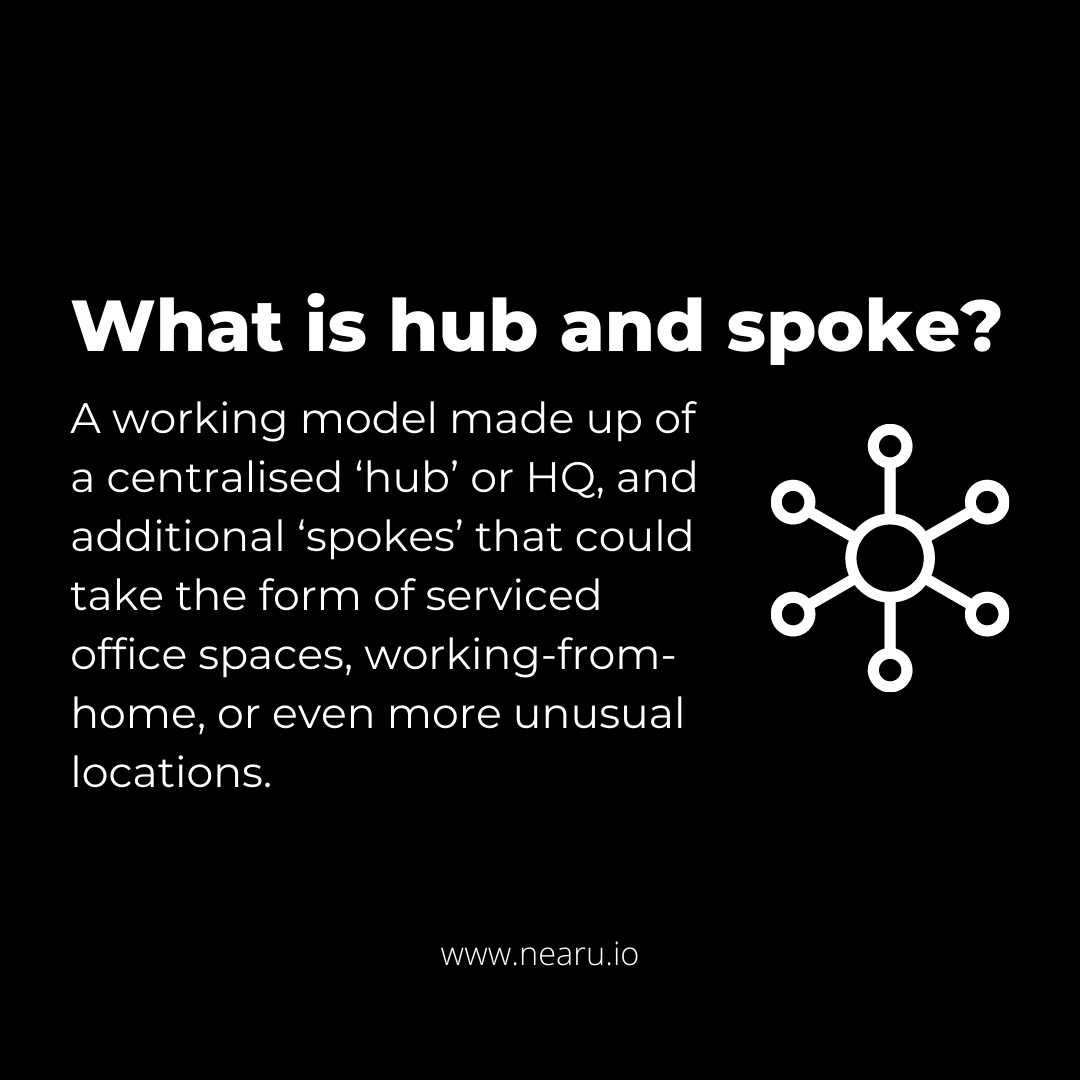
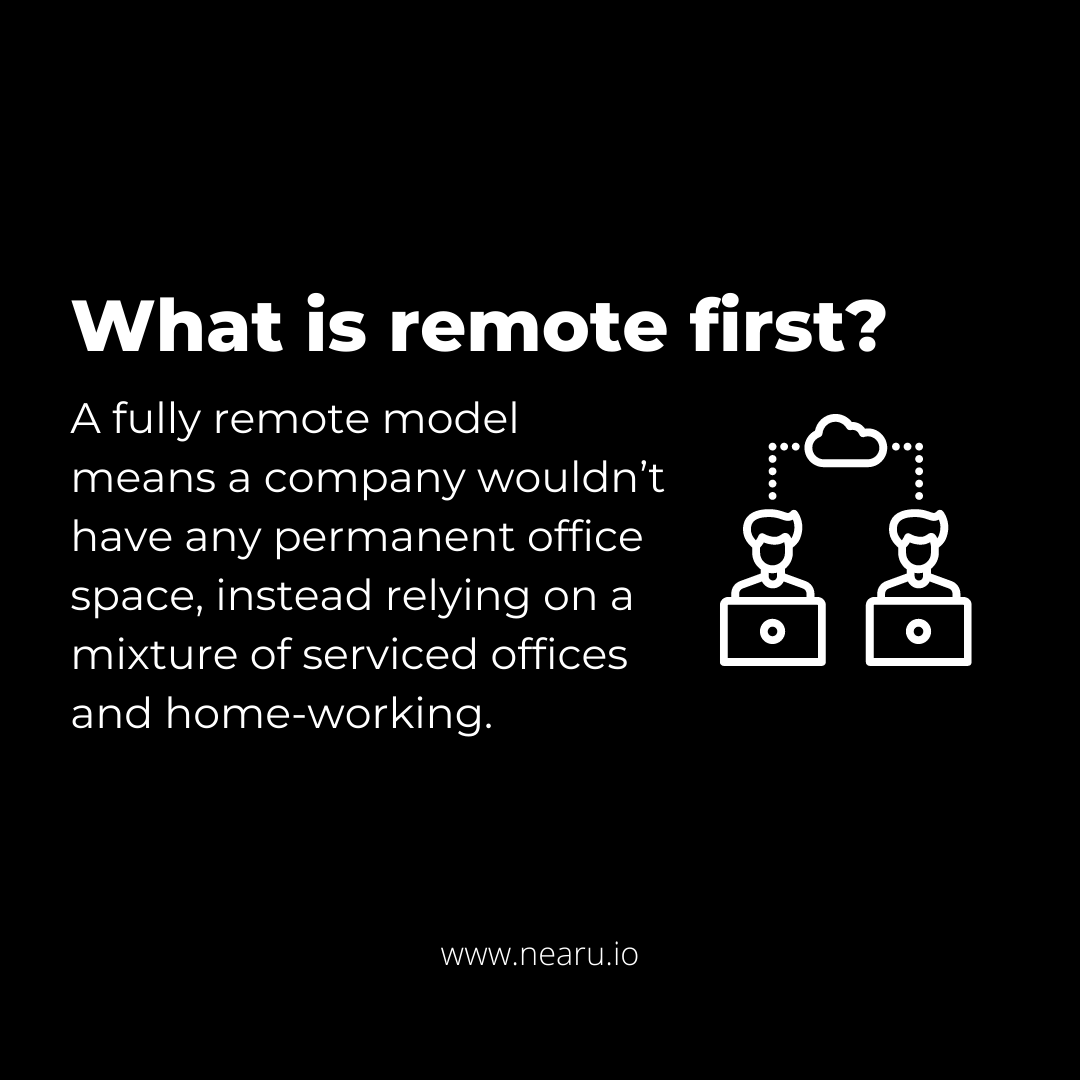
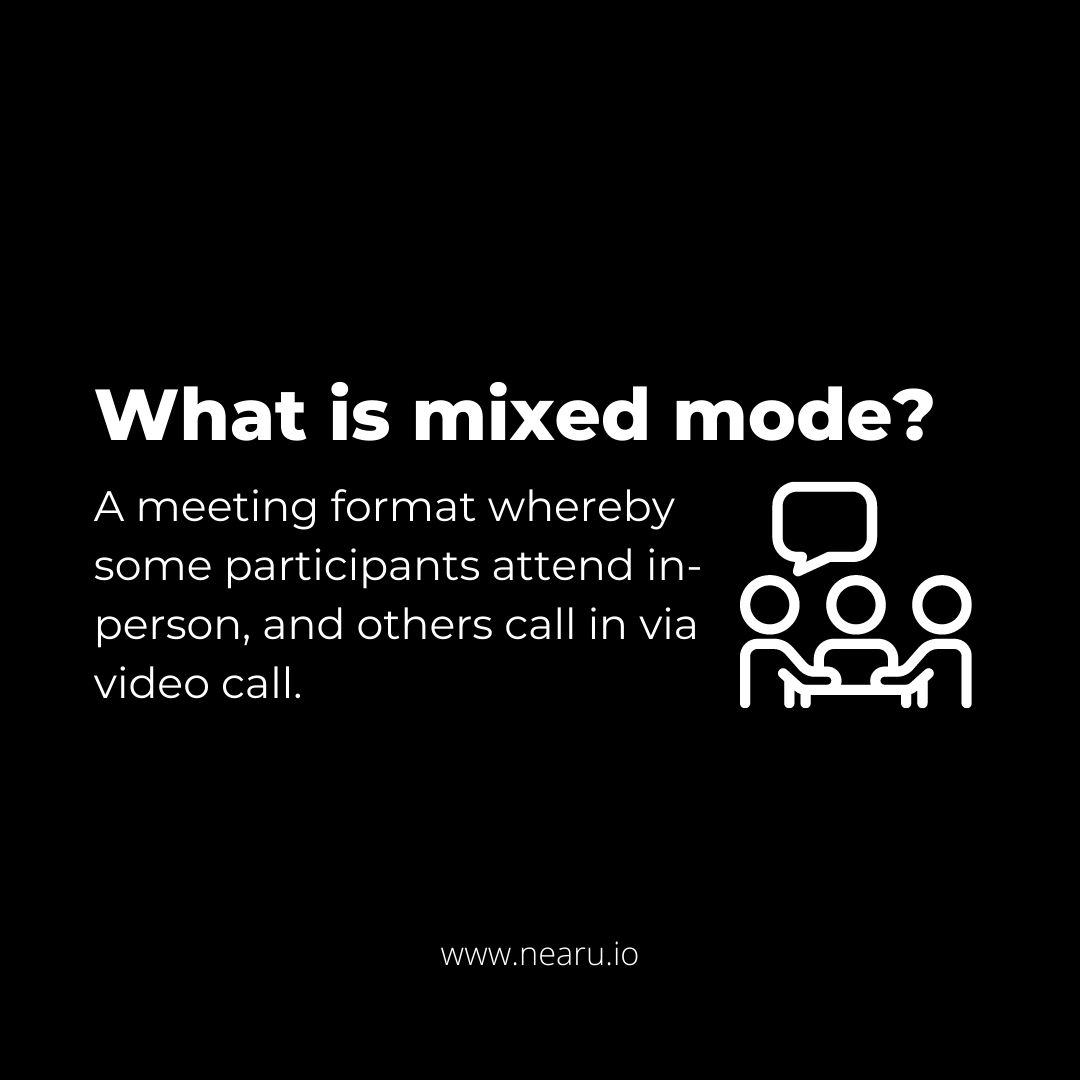
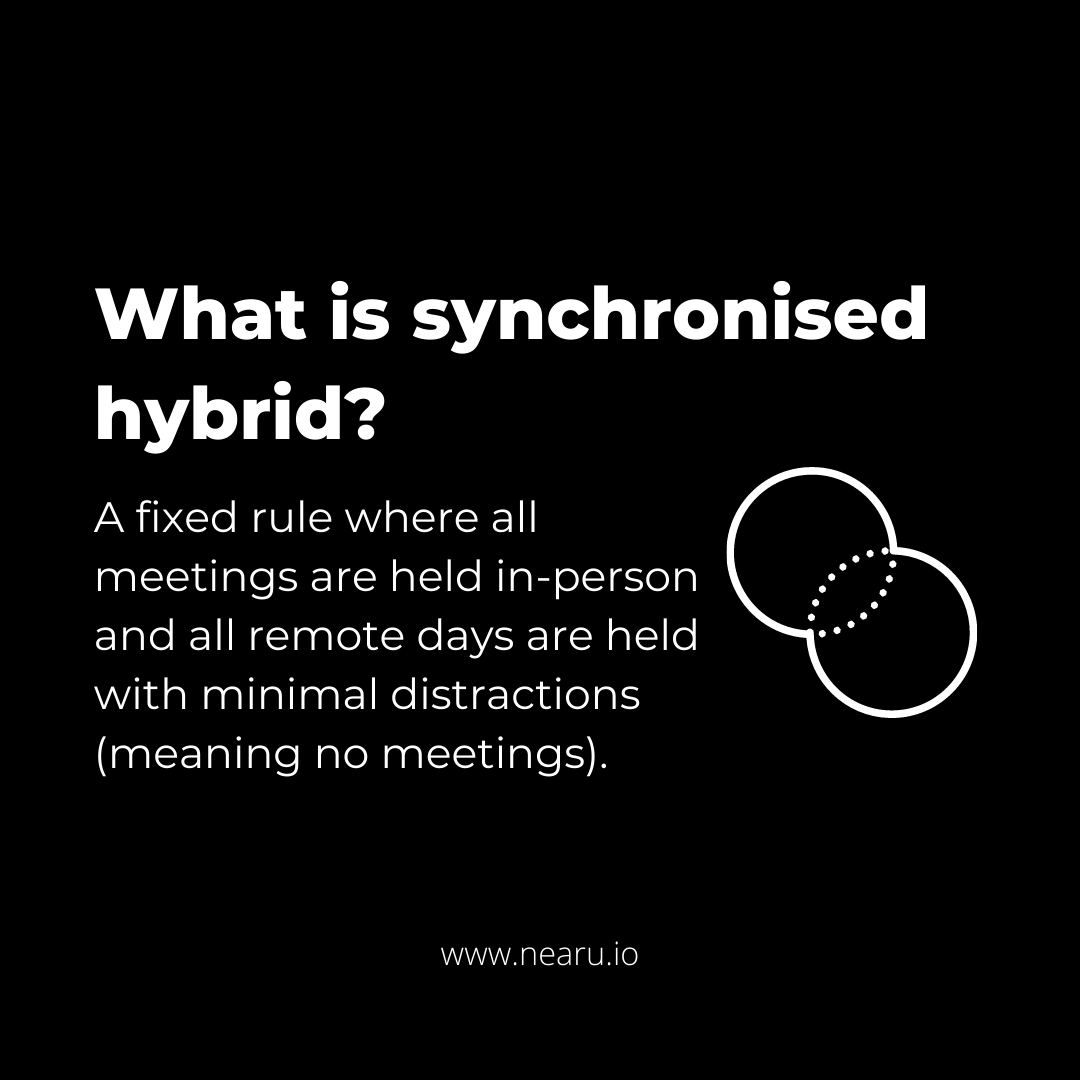
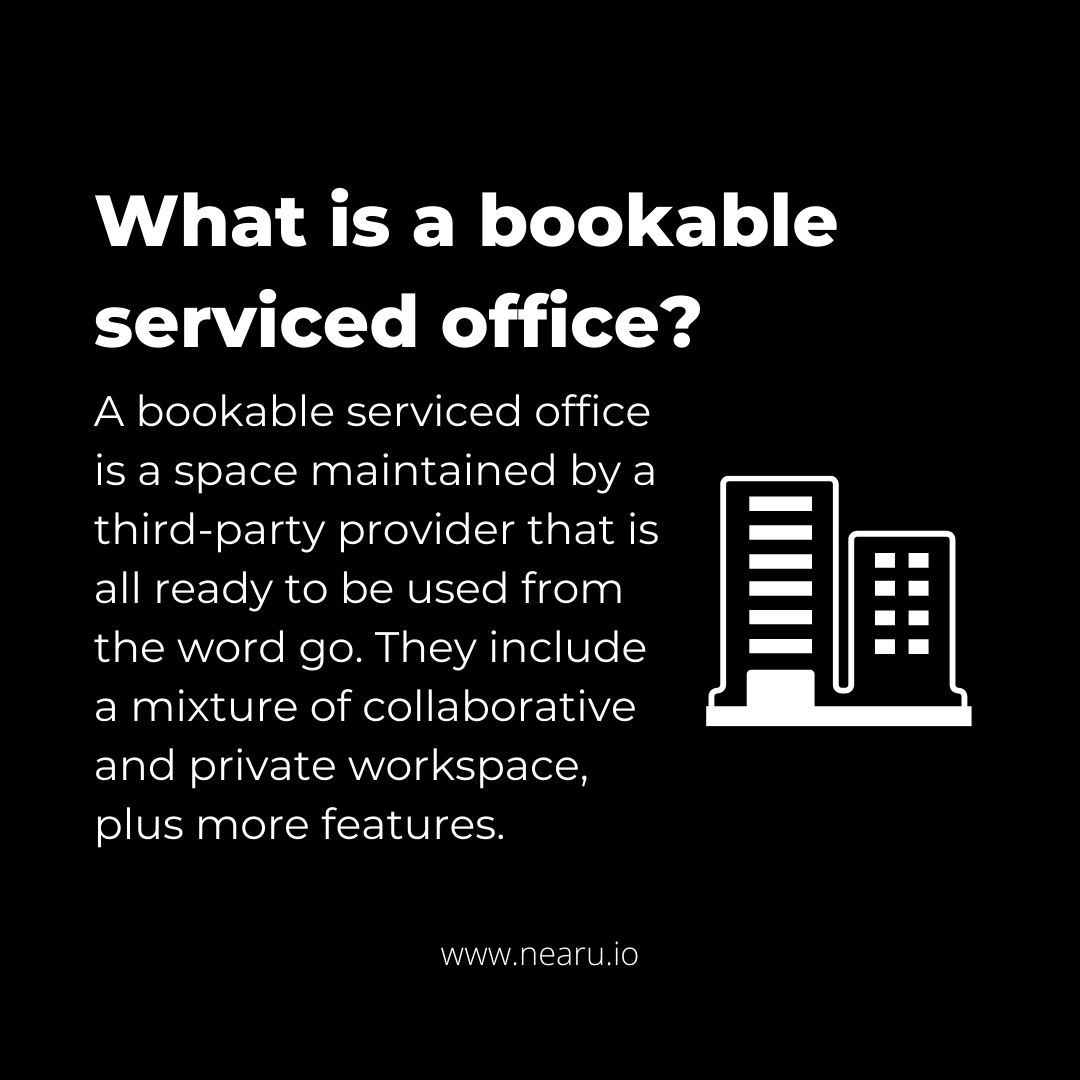
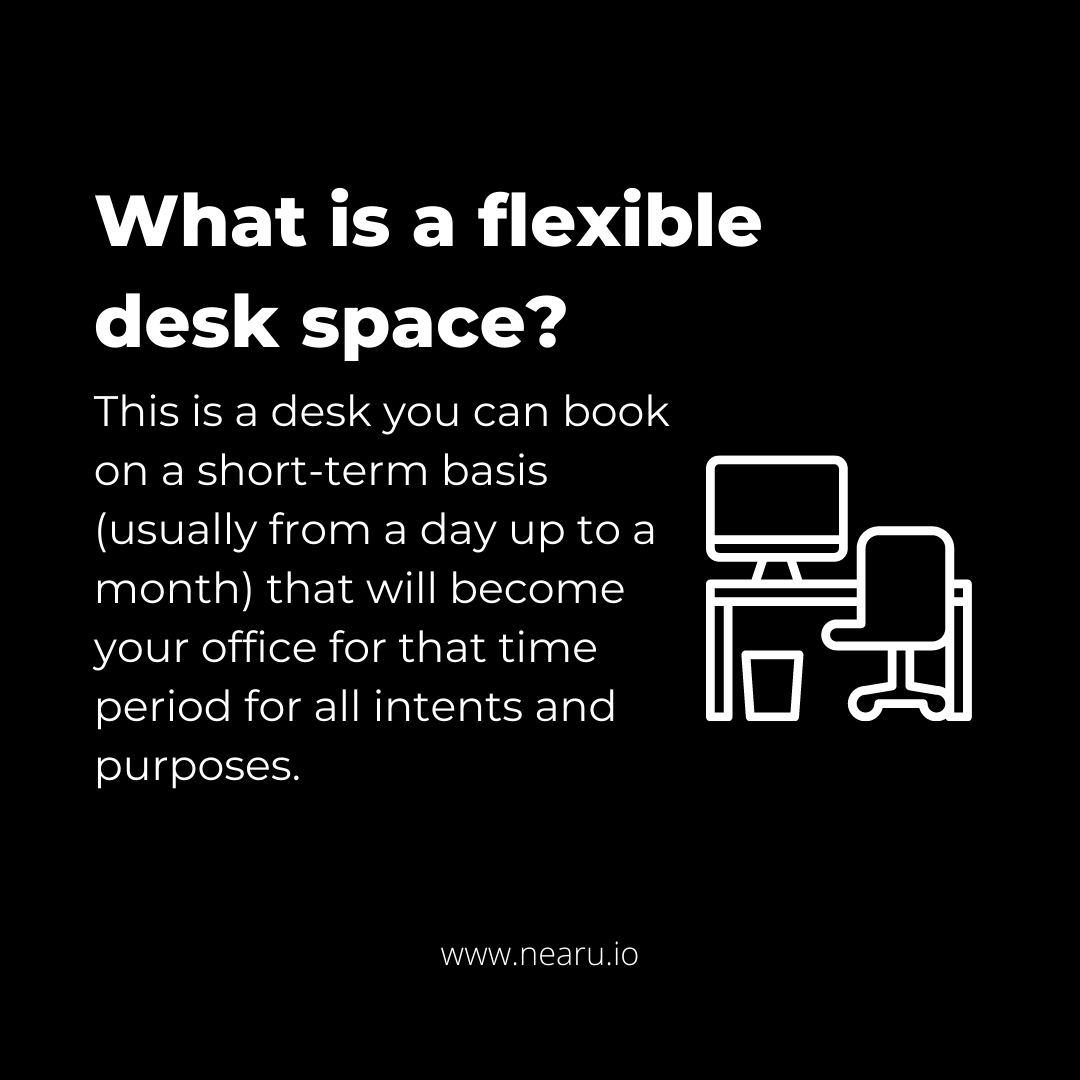
What is hybrid working?
Hybrid working refers to a model that allows employees to choose where they work best - this could mean any space where they feel they perform most efficiently, from the head office to the home to a 'third workspace'.
There’s no one-size-fits-all approach to hybrid working, and as a result, every company will have their own unique policy to suit their employees. But here are just a few forms this model might come in.
What is a hub-and-spoke model?
Hub-and-spoke is just one of the structures hybrid working could take. This would basically mean having a centralised ‘hub’ or HQ, like a traditional head office, with additional 'spokes' that could take the form of serviced office spaces, working-from-home, or even more unusual locations.
This model doesn’t necessarily have to operate within the same city, or even country, either. For example, you might have a head office in London where the majority of workers are based, but a number of smaller teams in Bristol and Birmingham who make use of serviced office spaces as opposed to long-term rentals.
What is the Remote-First model?
Unlike hub-and-spoke, this model wouldn’t necessarily include a centralised HQ - but it also doesn’t have to mean working-from-home. A fully remote company wouldn’t have any permanent office space, instead relying on a mixture of serviced offices and home-working. And of course, this has the added benefit of not being tied to any geographical location either, which makes it the perfect model for digital nomads.
What are mixed-mode meetings?
This is a meeting format whereby some participants attend in-person, and others call in via video technology like Zoom or Google Meets. The technology to allow this to happen smoothly, however, still needs work - as Dustin Muskovits, CEO of Asana, put it in this Twitter thread; “video conferencing is better all or nothing… problems hearing, fitting in the frame, not knowing where to look - that will be tricky to navigate.”
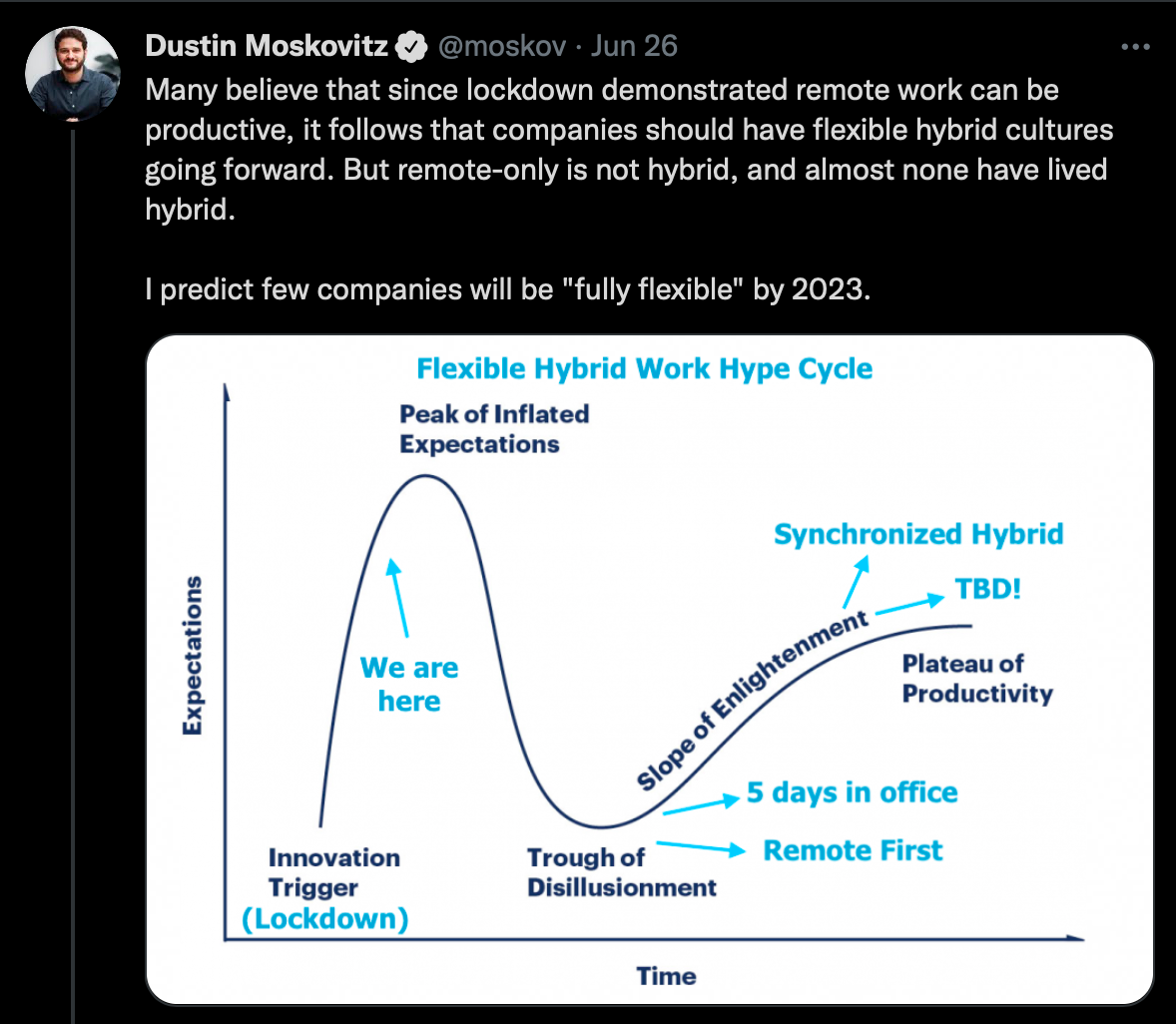
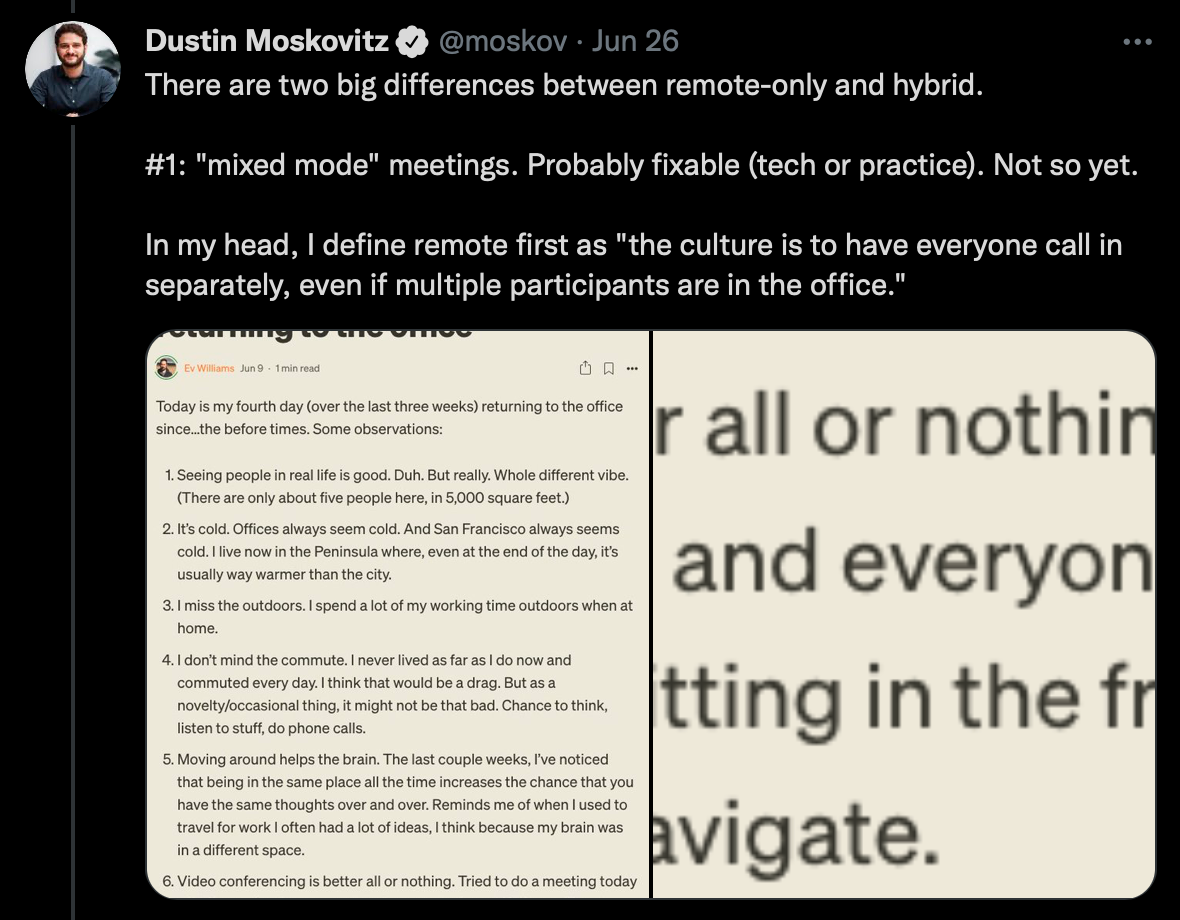
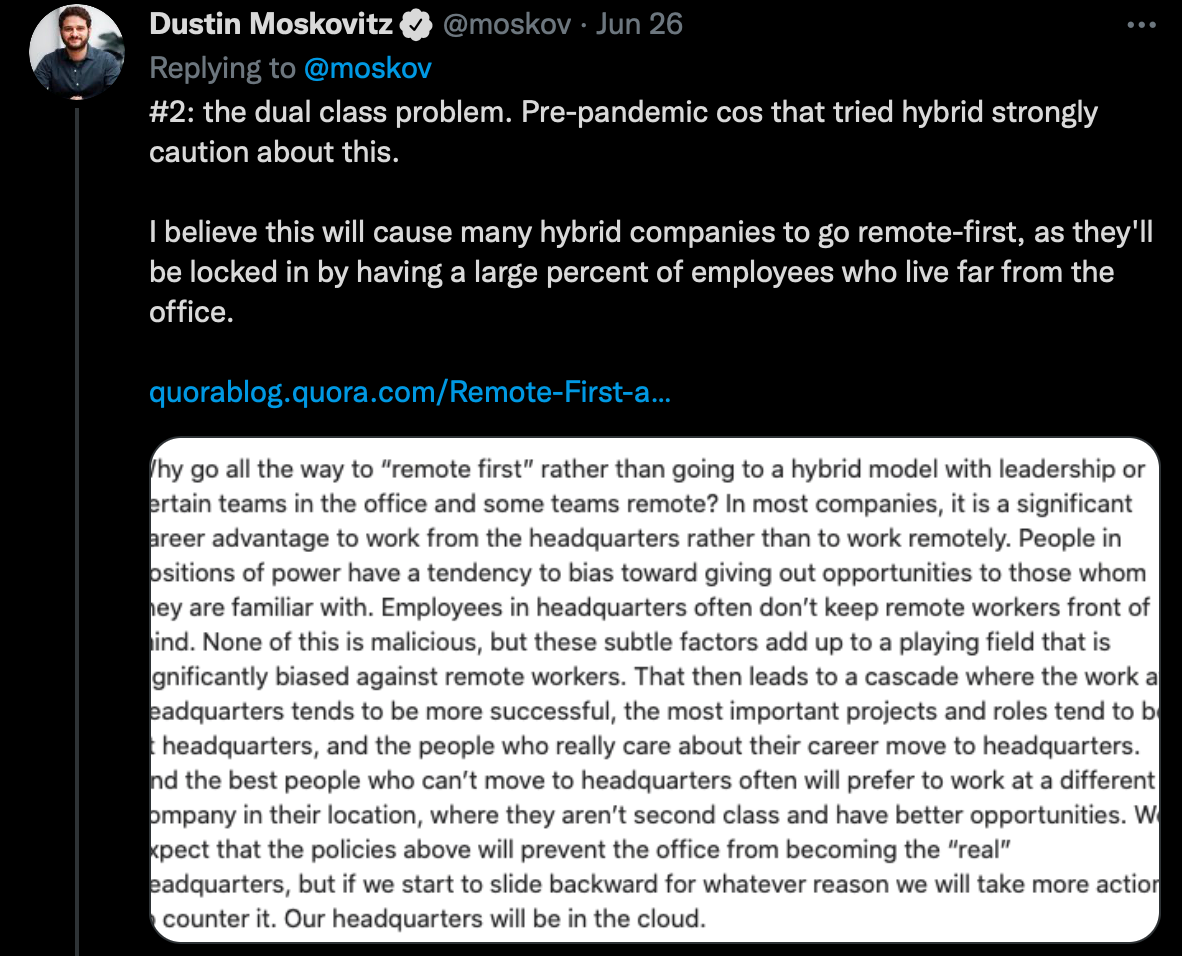
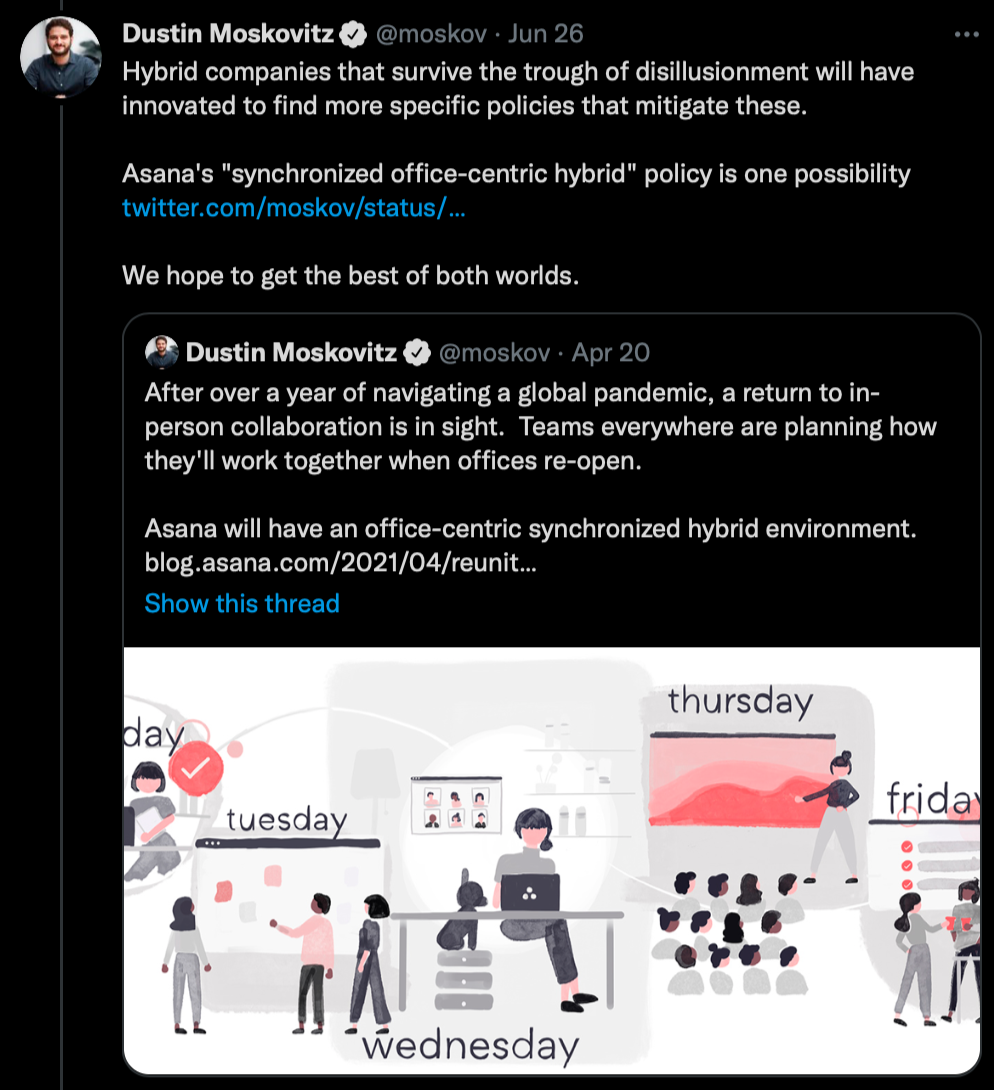
What is a synchronized hybrid model?
This is a fixed rule where all meetings are held in-person and all remote days are held with minimal distractions (meaning no meetings) - sort of the opposite to 'mixed-mode'.
This model ensures that when in the office, whole teams benefit from in-person collaboration, and when at home or at a separate workspace, individuals can focus on the task at hand without needing constant contact.
What is a bookable serviced office?
A bookable serviced office is a space maintained by a third-party provider that is all ready to be used from the word go. They usually include a mixture of collaborative and private workspace, as well as some of the following features...
- High quality furnitre
- Access to Wi-Fi
- Mail services
- Security staff
- Printing and copying equipment
- Kitchen facilities
- Reception and cleaning staff
- Storage areas
However, some of the more luxury offices may also offer gym facilities, PA services, roof terraces, fitness classes, event spaces, knowledge-sharing communities and more.
You can check out a serviced office near you using our app available on App Store or Google Play - just type in your location.
What is a flexible desk space?
This is a desk you can book on a short-term basis (usually from a day up to a month) that will become your office for that time period for all intents and purposes. There has been a dramatic shift in innovative spatial thinking where new types of spaces such as hotels can provide newly formed flexible desk spaces alongside the well known 'coworking' and bookable office spaces.
Due to the nature of them being flexible, usage of these spaces can be one day, a couple of days or every day of the week for that time period. Some facilities will even allow you to leave your equipment set up at your desk, which can be an added bonus if your job requires you to lug heavy tech around.
Flexible desk spaces provide a great alternative to home or office-based working - whether you travel a lot, don’t have a home office, or just want to add a bit of variety to your working life. They also act as an interesting space for collaborating across different industries and companies.
The context
The pandemic
The world has been moving towards a hybrid model now for the past decade, but the transition has undoubtedly been accelerated by the onset of the COVID-19 pandemic in 2020. After the first UK lockdown was announced on 23rd March, going into the office in-person became a physical impossibility, with pretty much every company being forced to up its reliance on previously unheard of digital communications systems like Zoom or Slack.
But even as the world emerged out of various lockdowns and infection rate peaks, the way we work will never go back to pre-pandemic levels; many firms have realised that while home-working has too many risk factors, their staff still enjoy the flexibility of choosing where they work - as long as their set-up is suitable.
The geographical context
Part of this flexibility has led more people to question the need for being located in expensive city centres. London has seen a mass exodus triggered by the pandemic - but even before the pandemic, these trends were already emerging.
Between 2019 and 2020, 101,000 people moved out of the capital, likely in favour of cheaper, less urban communities. The past year has shown that most people don’t actually need to commute at all, as their jobs can be done well enough remotely; and unsurprisingly, employees like having more time and money.
The social context
But an increase in free time and real income isn’t the only difference that employees have seen thanks to the new model of working - many have also discovered their voice. While pre-pandemic work hierarchies usually consisted of orders coming from the top-down, when employers began releasing statements about their planned return to work this was turned on its head, as the backlash from staff was very fierce, and in some cases, very public.
One of the most notable examples comes from the United States, after editors at the Washingtonian refused to publish for a day following an op-ed from Editor-in-Chief, Cathy Merrill, about her plans to force a complete return to work. Her words read as subliminal threats to employees, who had been working remotely for the entirety of the pandemic, as she said; “Remember something every manager knows: The hardest people to let go are the ones you know.”
Fortunately, the strike was resolved quickly and Merrill’s op-ed was quickly amended - but she, and the world, had already received the message. Employees on the whole have begun to realise they can leverage their labour to get what they want - and what they want is the flexibility that a hybrid model offers.
The economic context
It’s only natural to be fearful of what effect this change could have on the economy, especially the dire state COVID has forced the country into. The UK entered a technical recession following a particularly bad second quarter in 2020, which saw a record fall of 20.4%, with service industries being particularly hard hit.
The impact of the immediate shift to home-working was sorely felt by coffee shops and other central food establishments, which lost almost their entire client base of commuters and workers on lunch breaks overnight. But while the short-term impact has been a shock, this shift away from city centres presents an opportunity to enrich local communities and divert funding from the capital to areas that need more support.
The political context
Such structural changes are up to the government to implement, and where hybrid working will fit into future government policy is yet to be officially seen. While the issue seemed to unite politicians across the key parties in November 2020, as all agreed that flexible working should become “a right for all rather than a perk for the few”, messaging since has been unclear.
The Conservatives have encouraged businesses to make their own decisions when it comes to choosing where employees work, while other parties, like the Greens and the SNP, have taken a more radical stance on working styles, even suggesting the widespread adoption of a four day week. Regardless, the subject of hybrid working is likely to be hotly debated for many years to come as new developments continue to emerge.
The benefits
Along with the obvious bonus of providing employees with more choice, hybrid working has countless benefits for everyone involved - from CEOs to real estate brokers, and office managers to entry-level workers (not to mention the planet too).
Impact costs
The average British employee spends £1,738 a year on commuting (and considerably more if you live in London), money which could be better put towards household bills, new technology to make hybrid working easier, or maybe even that fancy coffee machine you’ve had your eye on for a while.
£1,738
the cost of commuting for the average Brit per year
One of the key draws for employers is the potential to lower real estate costs - implementing a hybrid working model could take many forms, and some employers may choose to forgo permanent head offices entirely in favour of hiring pay-as-you-go desks and meeting rooms. According to Ben Rogoff, who runs the investment trust of Polar Capital Technology, moving towards a hub and spoke model could save employers up to 40% in potential office costs over three to five years. Here’s how three companies are putting their savings to better use.
40%
how much switching to hybrid working could save you on real estate costs over 3-5 years
While hosts will likely be already serving a steady stream of loyal customers, hybrid working opens them up to more opportunities for monetisation. As more companies install flexible working policies, ‘third workplaces’ will become more sought after, providing a great opportunity for hosts to extend their current client bases.
Real estate is a rapidly changing landscape, especially when it comes to commercial property - the City of London recently announced plans to convert 1,500 unused office spaces into homes, as fewer companies look set to make a full-time return to traditional working. Hybrid working presents a great opportunity for brokers to partner with companies that connect employees to flexible workspaces, create additional revenue streams, and stay ahead of the curve amongst competitors.
Boosts productivity
All these things considered, employee mood will be boosted and thus, productivity levels at work will soar. A recent study by Harvard scholar and work-from-anywhere expert, Raj Choudhury, predicted a 4.4% rise in productivity if all employees are given the choice that hybrid working offers. And once your work levels improve, this will of course have greater knock-on effects in terms of recognition from employers.
4.4%
the predicted rise in productivity for employees given the choice of where they work
Once a hybrid model is in place, this also gives employers more freedom when it comes to recruiting - no longer do you have to be constrained by a geographical talent pool. As long as there are workspaces in their city or local area, there’s nothing stopping you from hiring the best person for the job regardless of where they’re based.
The knock-on effects to staff mental health and motivation will clearly also be a benefit to both employers and employees - a happier workforce is 12% more productive according to a Warwick University study.
12%
how much more productive a happier workforce is
Lowers emissions
With 2030 sustainability goals approaching ever quicker, hybrid working could act as an important step when it comes to cutting down on company carbon emissions - currently, transport accounts for a third of all the UK’s emissions, though when the pandemic initially hit, these figures dropped by 40% (the largest decline in any sector). Hybrid working would allow companies to retain a split between WFH, working near home in flexible desk spaces, and only occasionally from the head office, which could keep commuting emissions down more permanently.
1/3
the amount of carbon emissions transport is responsible for in the UK
Supports diversity
The benefits of attracting a more diverse workforce are also unparalleled, since hybrid working allows you to hire staff regardless of accessibility requirements - and this has a knock-on effect to overall company success. According to a 2015 study by Josh Bersin, companies with diverse workforces are 1.7 times more likely to be leaders in innovation.
1.7
how many times more likely diverse companies are to be leader in innovation
For disabled employees, hybrid working could open up a whole host of opportunities - disability employment rates for 2020 were at an extreme low of 53.7%, which isn’t atypical of their usual levels, even pre-pandemic. Remote working solutions that allowed those with accessibility issues to work-near-home could open doors that were previously closed to them.
Similarly, Oxford University research shows that neuro-diverse employees are more productive when remote working - this is often because office contexts can be stressful and over-stimulating. Offering a hybrid option could thus attract this key segment of the working population that is often allowed to slip under the radar.
53.7%
the disability employment rate for 2020
Female workers have long demanded flexibility in their working schedules, especially mothers who often act as the ‘default parent’. But simply saying that they can work-from-home will only exacerbate pre-existing gender equalities, both at home and at work. One working mother and accountant, Emily, told The Guardian that the office would continue to be an important escape for women to be able to get away from childcare and domestic duties when they needed to.
Access to workspaces in local communities outside expensive city centres has also been a lifeline for those from lower socio-economic backgrounds. A survey of young workers identified as under-privileged found that a third were in favour of hybrid working due to the unique opportunity it presented for saving money, on both commuting and rent.
Ethnic minorities remain under-represented in white collar jobs and hybrid working offers one mechanism to change this. Future Forum found that employees of ethnic minority backgrounds were more likely to prefer remote/hybrid working, with many attributing this to being able to avoid subtle discrimination in the form of micro aggressions. These employees also reported a greater sense of belonging to their team and higher productivity, when working remotely.
The myths & misconceptions
As with any change to the status quo, there have of course been many debates over hybrid working and its effectiveness. Right from its inception there have been two key camps - for and against - and those on each side of the debate were fervent in defence of their opinion. Just as one outlet would announce news that the hybrid model was here to stay, another would come out in opposition and report that the world would soon be back at the office.
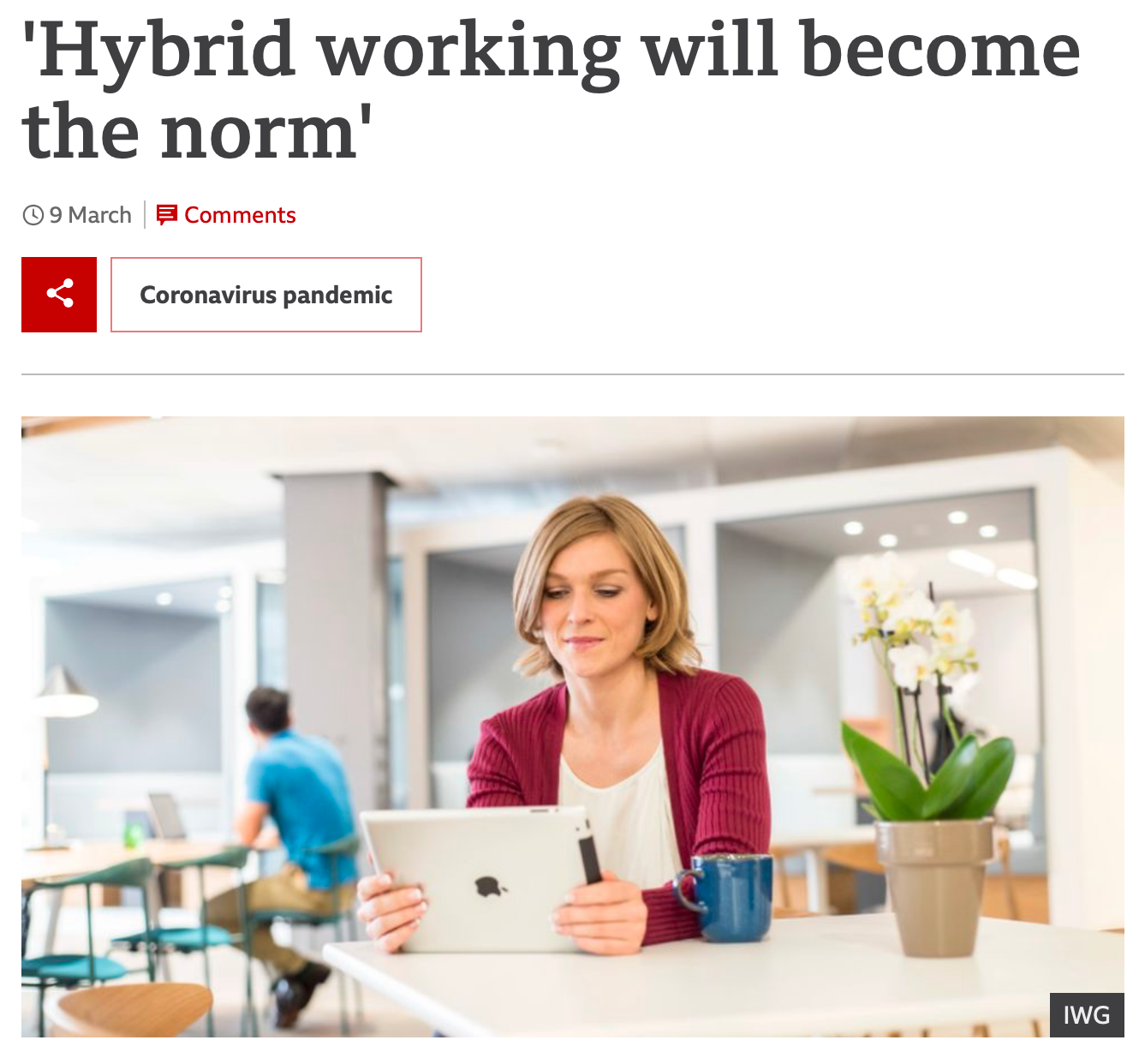
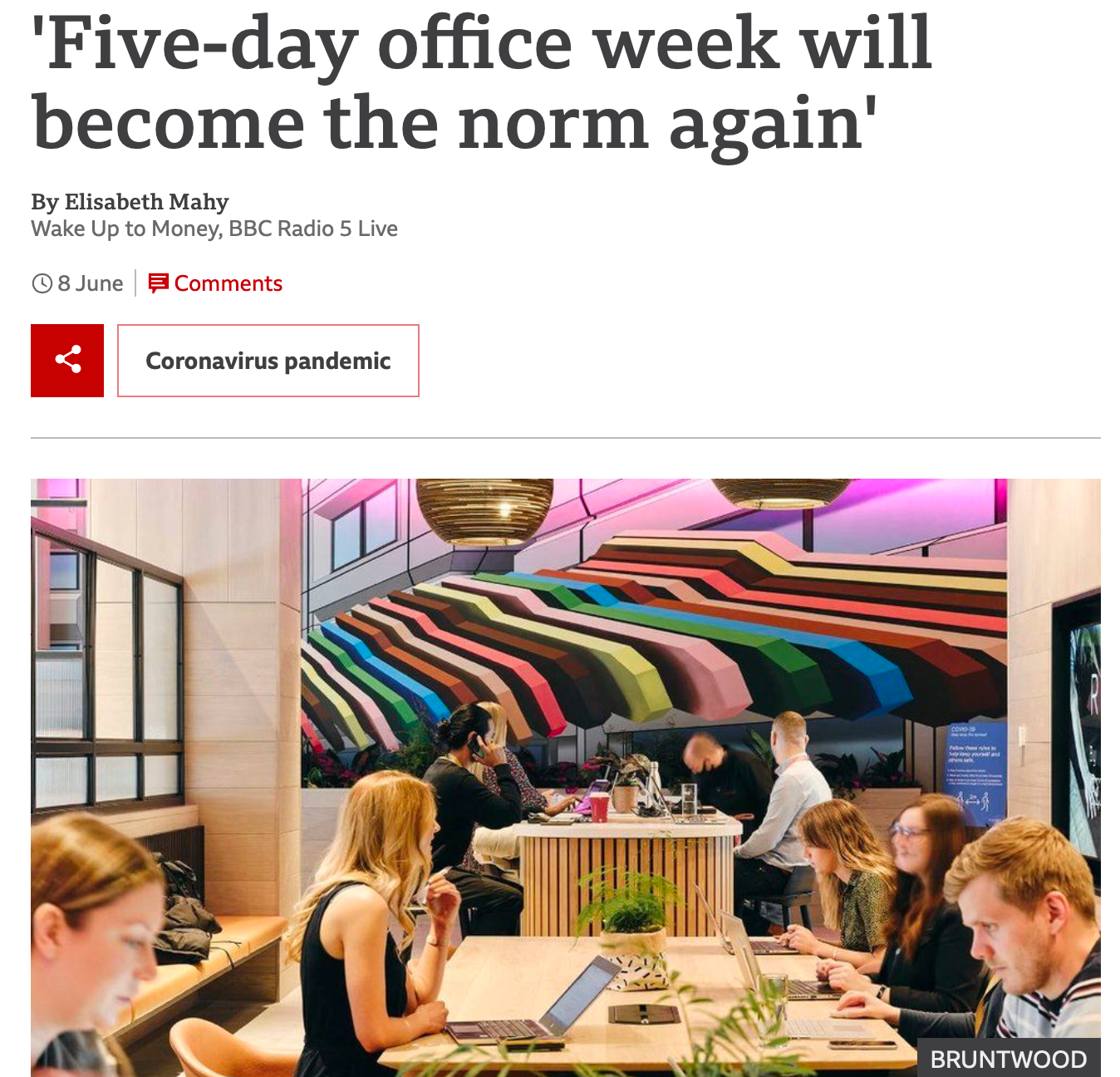
But it doesn’t have to be a binary - hybrid working is fundamentally about choice and because of that it should work for everyone. The key things holding businesses back from welcoming change with open arms are usually just myths and misconceptions, which can easily be debunked by a little research (which we’ve already done for you). So let us quell some of the worries you might be having about the future of work.
'Can you really be productive outside the office?'
Being so used to the traditional office-working format, whereby you can physically see your employees in front of you, means that it’s only natural for us to assume that people are just less productive outside the office - and it’s not completely false. Working from home can lead to distractions more easily - if you see a full laundry load or dirty dishes in the sink, you’re going to be taken out of that work mindset and into a domestic one.
Despite this though, 2020 saw productivity levels remain stable, and in some cases even improved. But the most important decider when it comes to productivity is choice - a study by Raj Choudhury, Harvard scholar and leader in the field of working-from-anywhere, found there to be a 4.4% increase in output for workers surveyed at the US Patent and Trademark Office when they were allowed to choose where they worked. So while it might be a little unnatural for managers and employers to grapple with not seeing their employees in-person, these worries definitely don’t translate into a real negative effect on company productivity.
'What about staff health and safety?'
The increase in home-working throughout 2020 meant people’s living spaces suddenly became offices, regardless of whether they were properly equipped or not. Those aged 18-24 were hit hardest by the lack of proper space, as a 2021 Savills survey reported that only 7.5% had access to a dedicated office space - such findings are a cause for concern when it comes to potential long-term physiological problems, from bad backs, to tight shoulders, to eye strain.
Fortunately, the rise of third workplaces and serviced office spaces available on short-term hire means that employers don’t have to worry about factoring in a budget for home-office revamps - such spaces are already fully equipped, often with ergonomic furniture, to prevent health complaints before they even start to niggle.
'How will offices have to be re-designed?'
Office design will see a huge overhaul in the coming years, both to reflect the changing health needs as mentioned above and as the traditional grey cubicle format loses favour. Many employers might have financial concerns about how to implement design features in their own offices - light open spaces with bright colours tend to boost productivity and employee mood, but such changes can be costly. Hybrid working presents an easy way to implement modern interiors without spending a fortune, as many serviced office spaces are already designed to maximise productivity, and are continually updated to reflect the latest trends. Encouraging employees to use such spaces would mean that there’s no pressure to update your current offices with every changing trend.
'Coworking has a bad reputation'
Partly due to media stereotypes and companies like WeWork taking a very public tumble in the limelight, ‘coworking’ has gained something of a bad reputation over the last decade. For this reason, employers might be a little hesitant about encouraging employees to use such spaces. But the good news is, 'coworking' is getting a rebrand, with coworking spaces often being referred to as serviced offices or flexible desks. At NearU we aren’t proposing something radical - former WeWork CEO, Adam Neumann, originally envisioned ‘We’ spaces extending beyond offices, to banks, group hobbies, and even communal sleeping areas. It’s just about giving employees more choice over where they work - a choice that should extend beyond the home and the head office.
The practicalities
Given that hybrid working isn’t a ‘one-size-fits-all’ approach, there naturally isn’t one tool when it comes to implementation. The technology required to create staff cohesion may seem daunting at first, but once put in place, your teams will be able to easily collaborate from wherever they work best.
Work NearU
First off, we have to give ourselves a little bit of promotion. NearU’s easy-to-use app puts flexible working at your fingertips - we connect employees directly to serviced offices near them which can be booked for up to a month at a time at a fraction of the cost of a long-term rental. Unlike previous incarnations of flexible working services like WeWork, NearU is subscription free and completely pay-as-you-go.
What about tech?
While where you work is vital in creating a healthy hybrid balance, choosing the right tech to supplement this is another key task. When it comes to video conferencing, it’s important to consider the needs of your team - Zoom has emerged from the pandemic as the most recognisable name, but there are plenty of other tools to choose from; Teams, Google Meets, Whereby, Slack, and more. If you find your team is more productive when doing something physical, Meet with Spot might be of interest - this is the first video conferencing platform built for walking meetings, making it ideal for brainstorming or anything that requires creative juices. As for organising documents and workflows, centralised platforms like Notion, GDrive, Almanac, and Tandem have seen great uptake thanks to their ability to keep everything stored in one place.
What are real companies doing?
But enough with the logistics - you want to know which companies are implementing hybrid working policies, and exactly how they are doing it. After the third lockdown of the COVID-19 pandemic, many businesses confirmed that they would be ditching the office in some form - the BBC reported that almost 50 of the UK’s biggest employers were planning to adopt a hybrid model that would mix staff between homes and offices. Though this looks very different for each company.
Adobe expects staff to work-from-home about 50% of the time with moves to being remote-first expected in future; Fujitsu allows its workers to move between hub and spoke offices at will, providing variety when they don’t want to (or can’t) work from home; HSBC are redesigning their offices to reflect the look of co-working spaces so that employees can work more effectively when they’re in the office, while also working-from-home when they please. But this is just the tip of the iceberg. Luckily for you, we’ve compiled the ultimate list of companies (divided by industry) implementing hybrid working, so you won’t have to look too far for inspiration when devising your own strategy.

